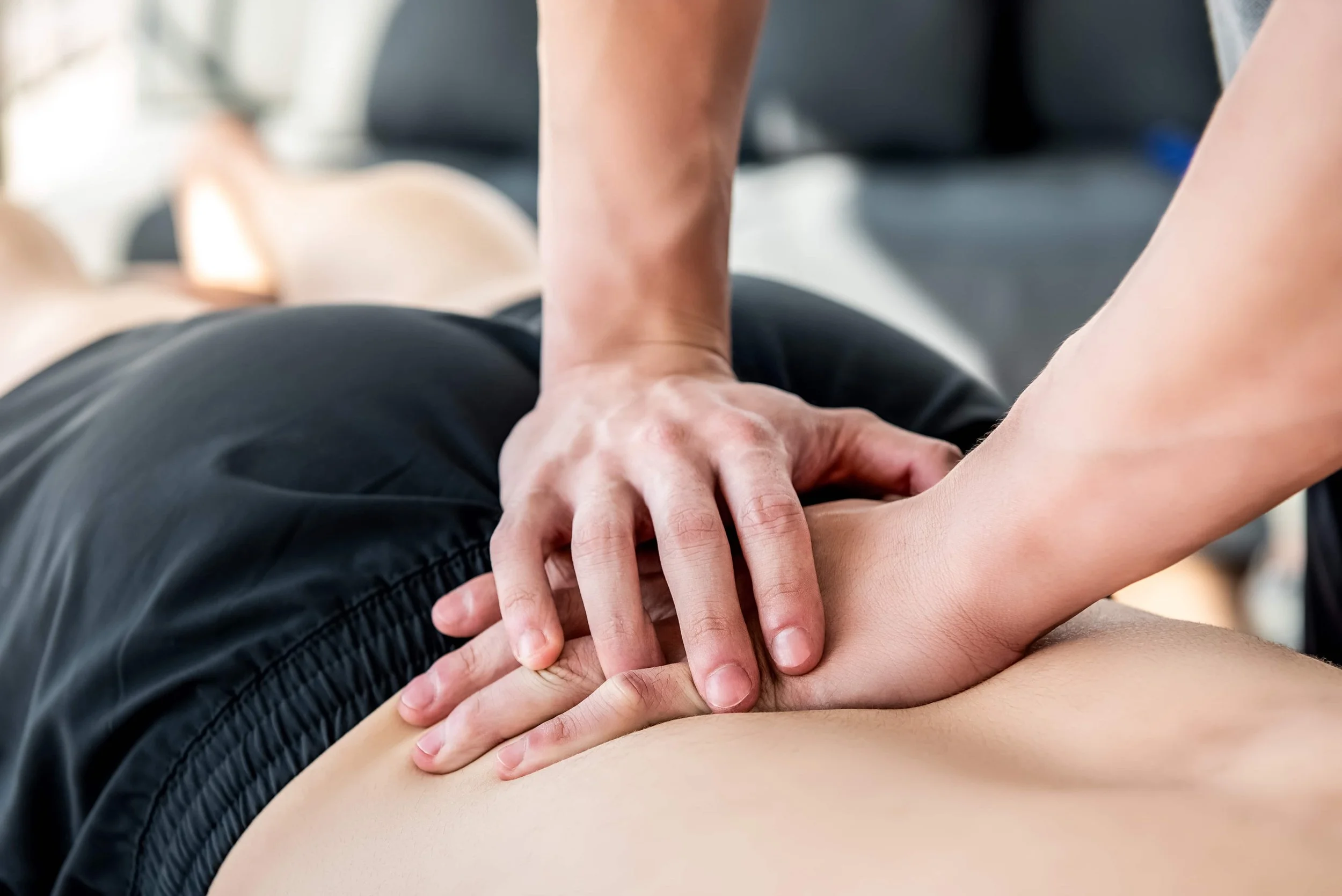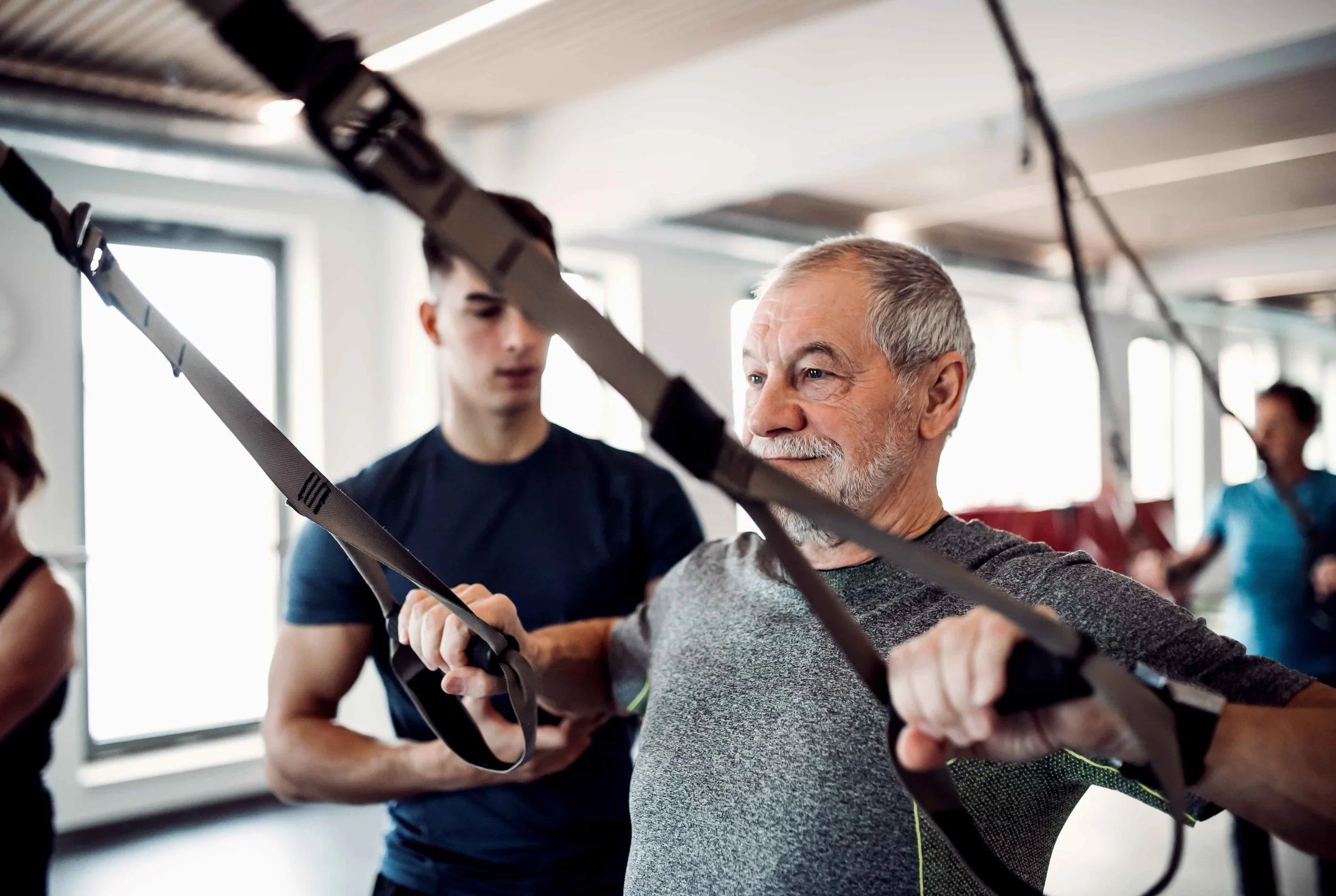Physiotherapy
Move Freely, Live Fully: Your Path to a Pain-Free Life Starts Here.
Whether it's persistent back pain that's complicating your workday, a nagging shoulder that's keeping you from the garden, or stiffness that stops you from enjoying a simple walk, we know that pain holds you back. Our expert physiotherapists are here to provide a personalised plan to help you move beyond your limitations and achieve your unique goals.
Common Conditions We Treat
Neck Pain & Headaches
A stiff, wry neck or a persistent headache can disrupt your entire day. We get to the root cause of your discomfort, using targeted hands-on techniques and corrective exercises to relieve tension, restore movement, and help you get back to a life with fewer headaches.
Lower Back Pain & Sciatica
Lower back pain is one of the most common issues we see, but it doesn’t have to be a part of your life. Whether it’s a sharp sciatic nerve pain, a dull muscular ache, or a disc bulge, we create a personalised plan to alleviate pain, improve your core strength, and get you moving confidently again.
Plantar Fasciitis
That sharp, stabbing pain in your heel with your first steps in the morning is a classic sign of plantar fasciitis. Through a combination of hands-on treatment, specific stretches, and footwear advice, we help you manage the condition and enjoy pain-free walking again.
Shoulder Pain
From reaching for a high shelf to throwing a ball, your shoulders are essential for daily life. We treat a range of conditions like rotator cuff injuries, dislocations, and frozen shoulder to reduce pain and restore your strength, helping you get your arm back in action with confidence.
Knee Pain
Knee pain can stop you from enjoying a run, climbing stairs, or even walking comfortably. Our expert team has seen it all, from runner's knee and ACL injuries to osteoarthritis. We provide a tailored rehabilitation program to reduce pain, improve stability, and get you back on your feet.
Osteoporosis / Osteopenia
Managing osteoporosis and osteopenia is key to maintaining an active and independent life. Our evidence-based exercise programs are specifically designed to improve bone density and enhance your balance, significantly reducing the risk of falls and fractures while boosting your confidence.
Your Journey Back to Health: Our 4-Step Approach
Your Partner in Recovery
Whether you're tired of living with pain or eager to get back to your favourite sport, your journey starts with a simple commitment to your health. At Macarthur Physiotherapy, we match that commitment with unparalleled experience and dedicated one-on-one care. We don't just treat your symptoms; we listen to your story and empower you with a clear path forward.
FAQs
-
No, you do not need a doctor's referral to see one of our physiotherapists. As Primary Practitioners you can book an appointment with us directly to get started on your recovery.
-
Please wear comfortable, loose-fitting clothing that allows us to easily assess the area of your injury. For example, shorts are ideal for a knee assessment, while a singlet is helpful for a shoulder issue.
-
Yes, physiotherapy is covered under the "extras" or ancillary cover of most private health insurance funds. We provide on-the-spot HICAPS claiming, so remember to bring your health fund card to your appointment.
-
Please bring any relevant referrals or documentation you may have, along with the results of any scans like X-rays or MRIs. If applicable, also bring your private health fund card, Medicare card, or any Workcover/DVA claim details.
-
No, you don't need a scan before your appointment, as our physiotherapists are highly skilled at diagnosing conditions through a thorough physical assessment. If we believe a scan is clinically necessary, we will refer you for the appropriate imaging.
-
Yes, we are experienced in managing patients under Workcover, DVA, NDIS, and Medicare Chronic Disease Management (CDM) plans. Please ensure you bring the necessary referral and documentation from your GP for these services.
Ready to take control of your pain or injury?
To reclaim your movement and rediscover life, give us a call on 02 4628 0026 or click the button now to secure your booking now.





